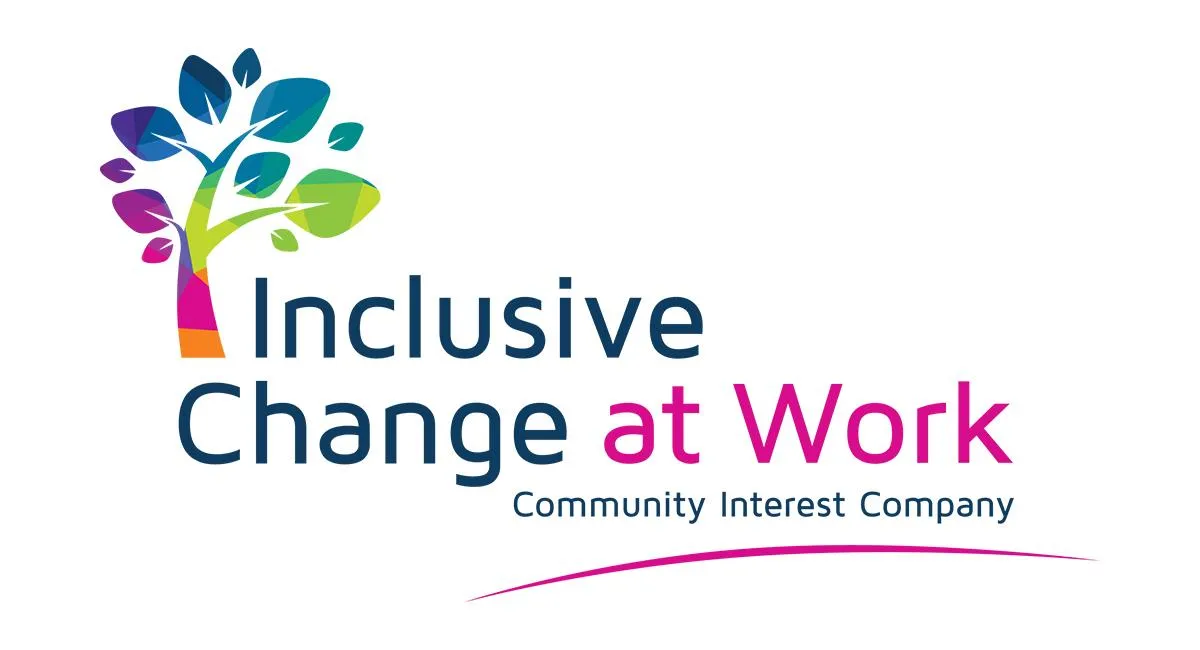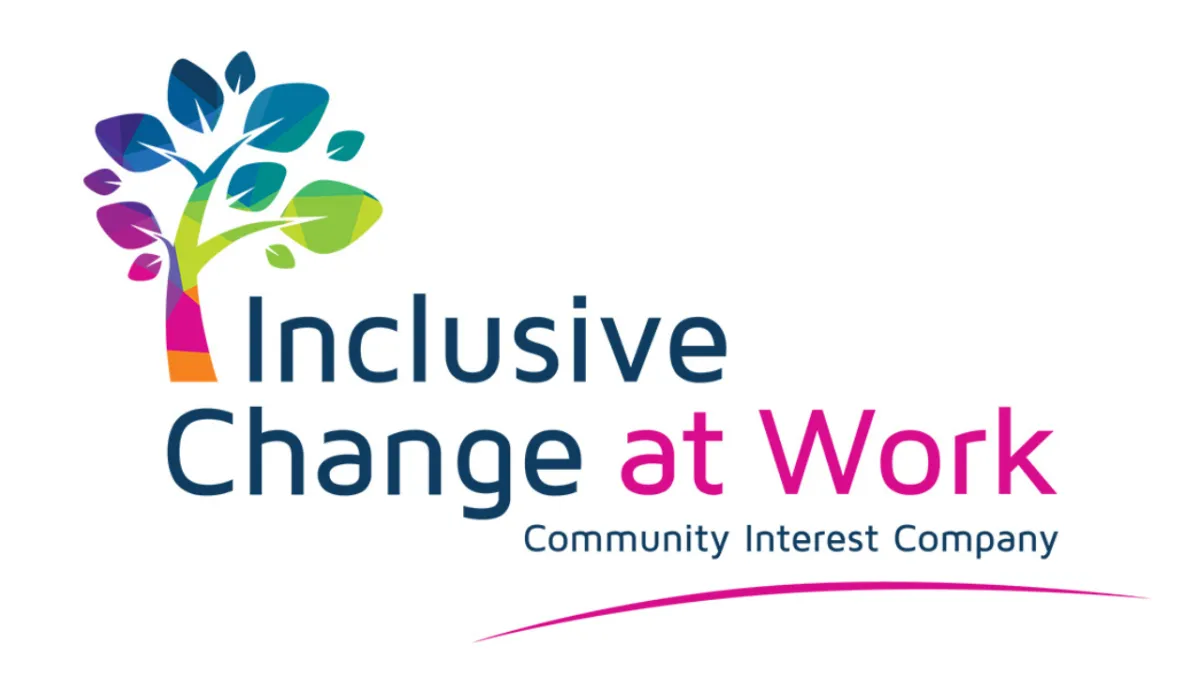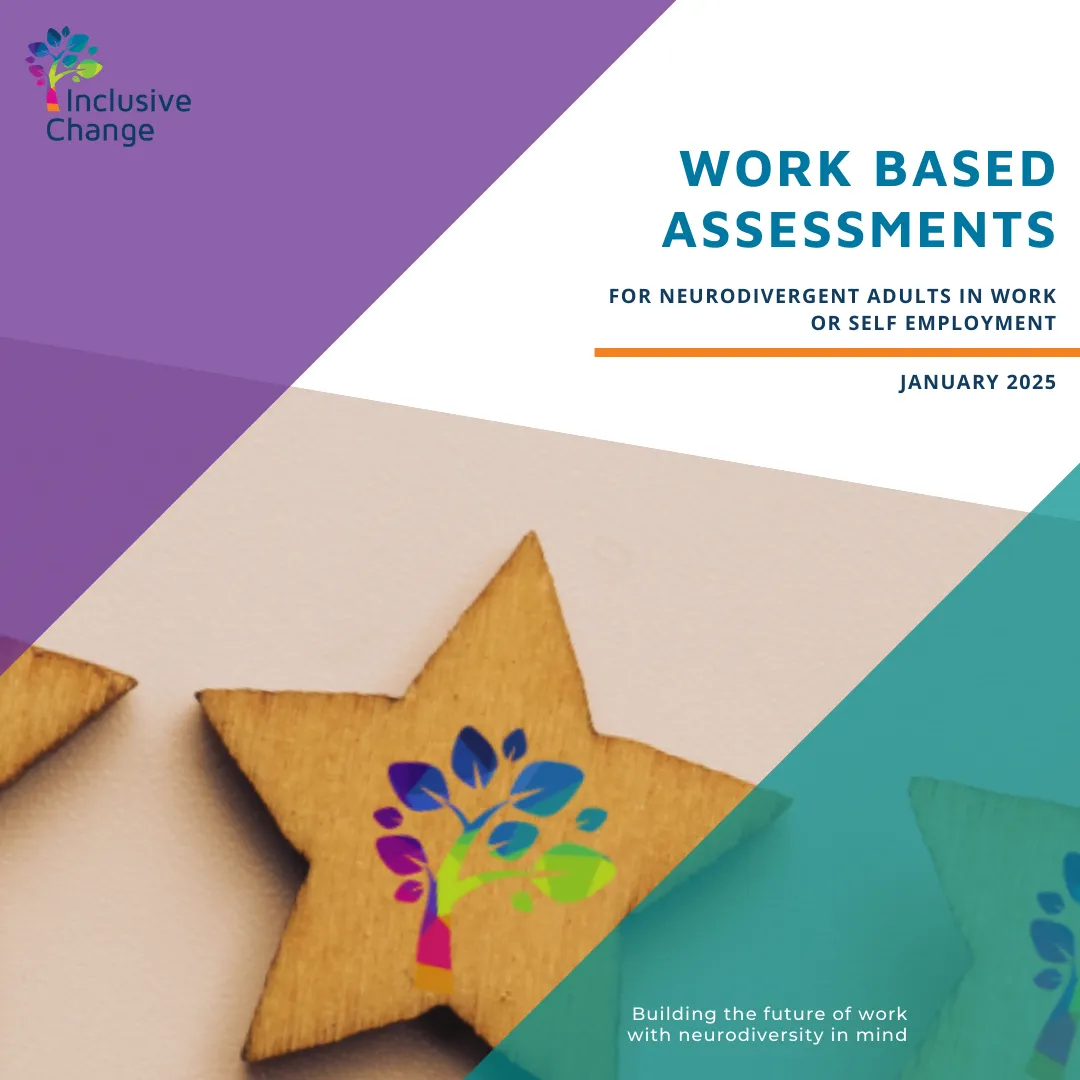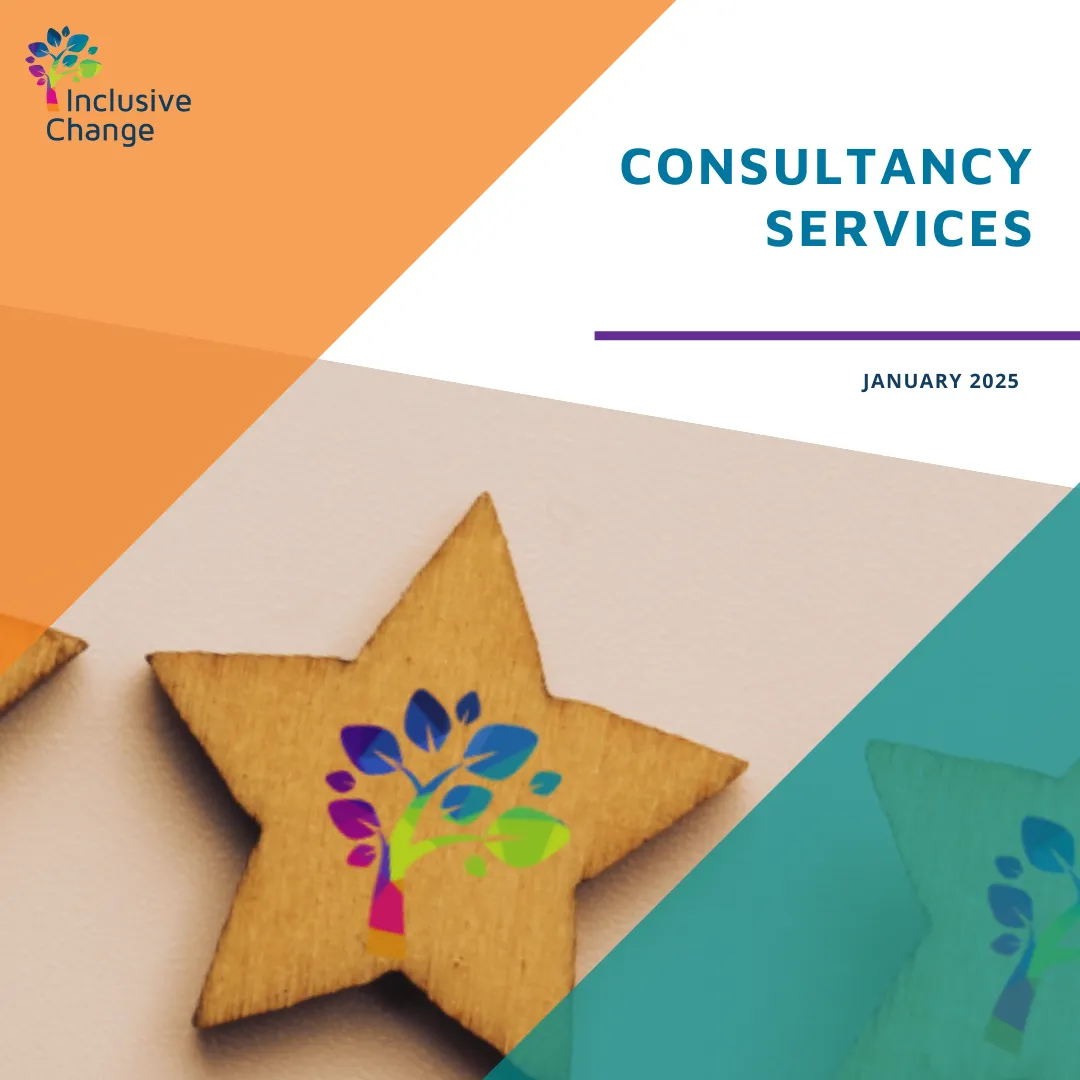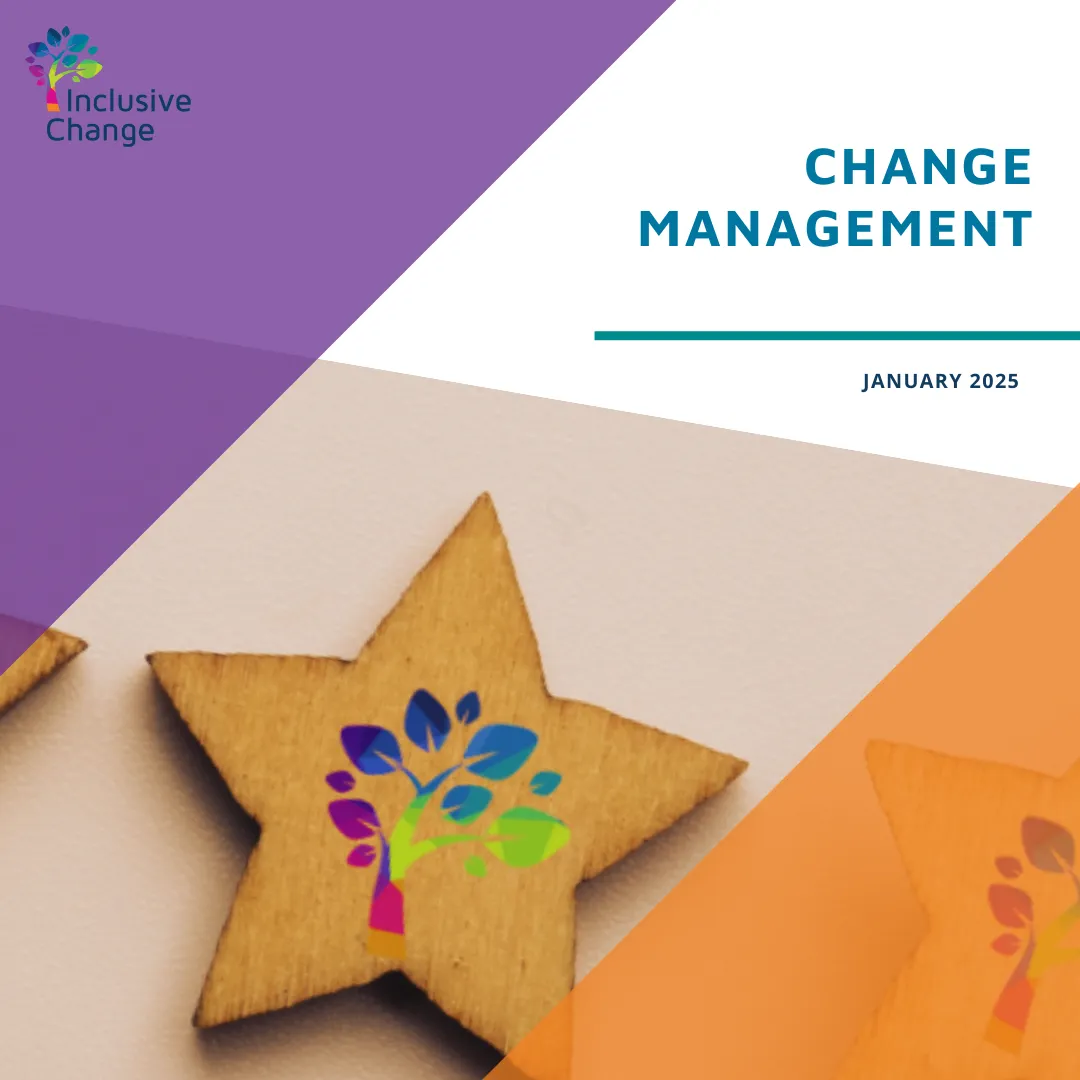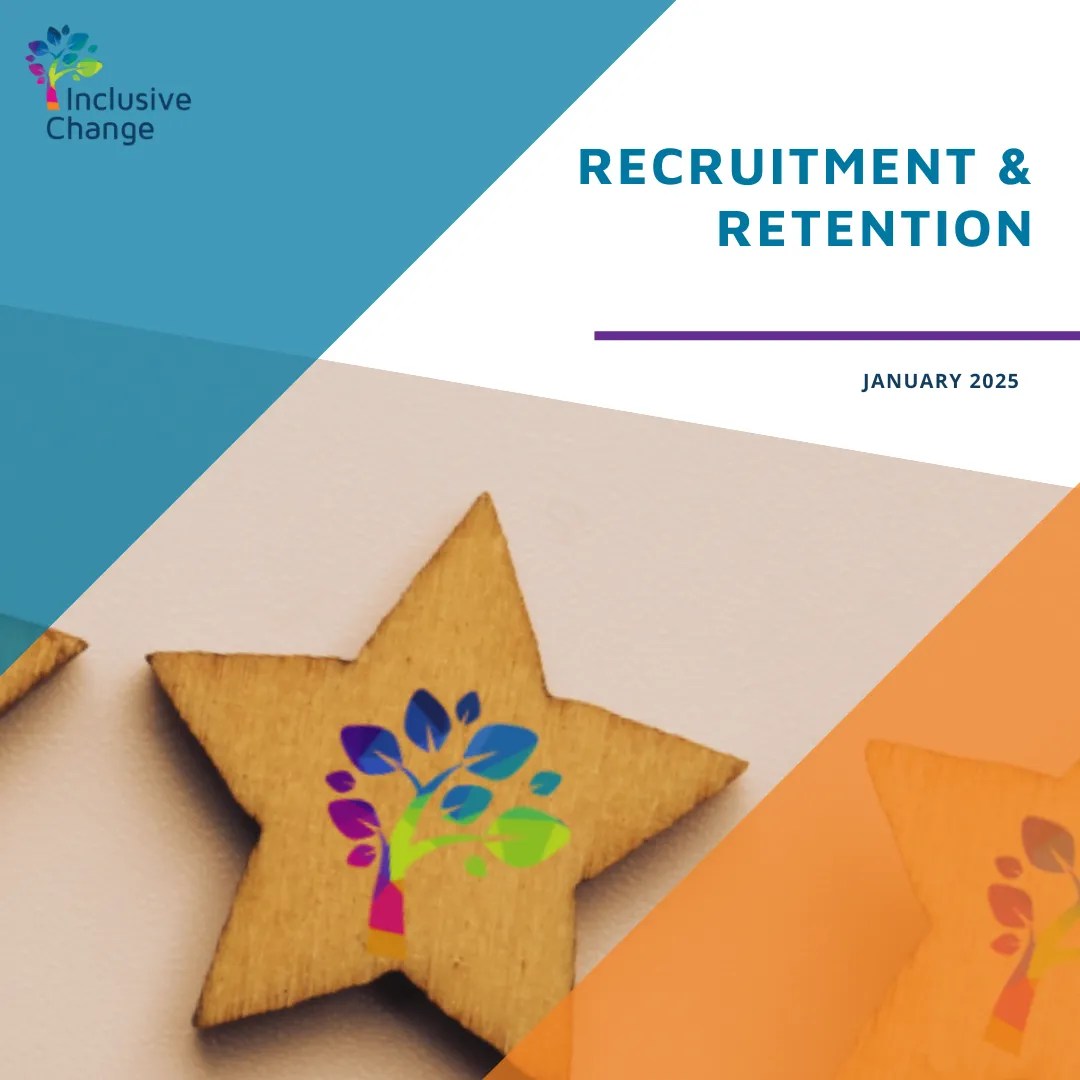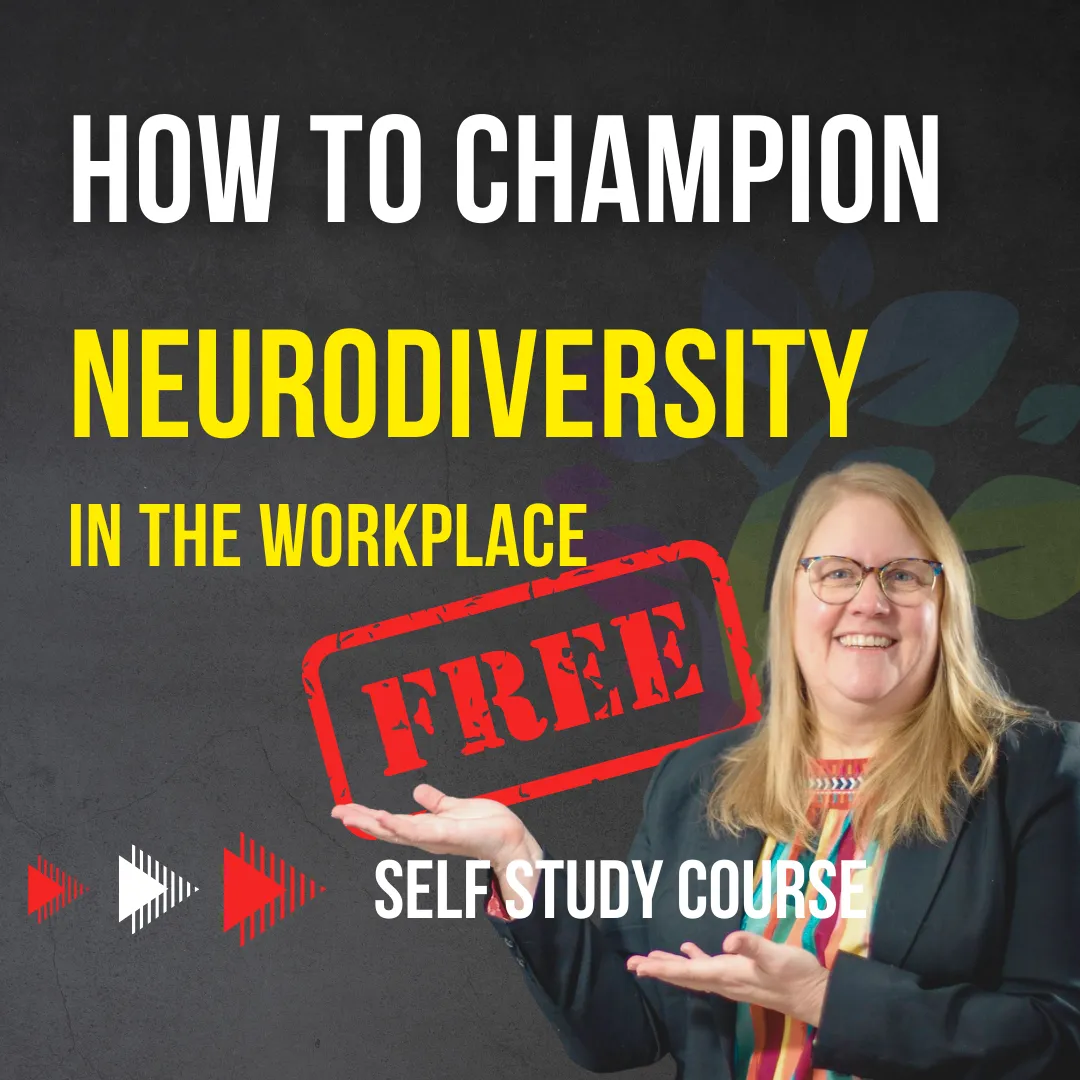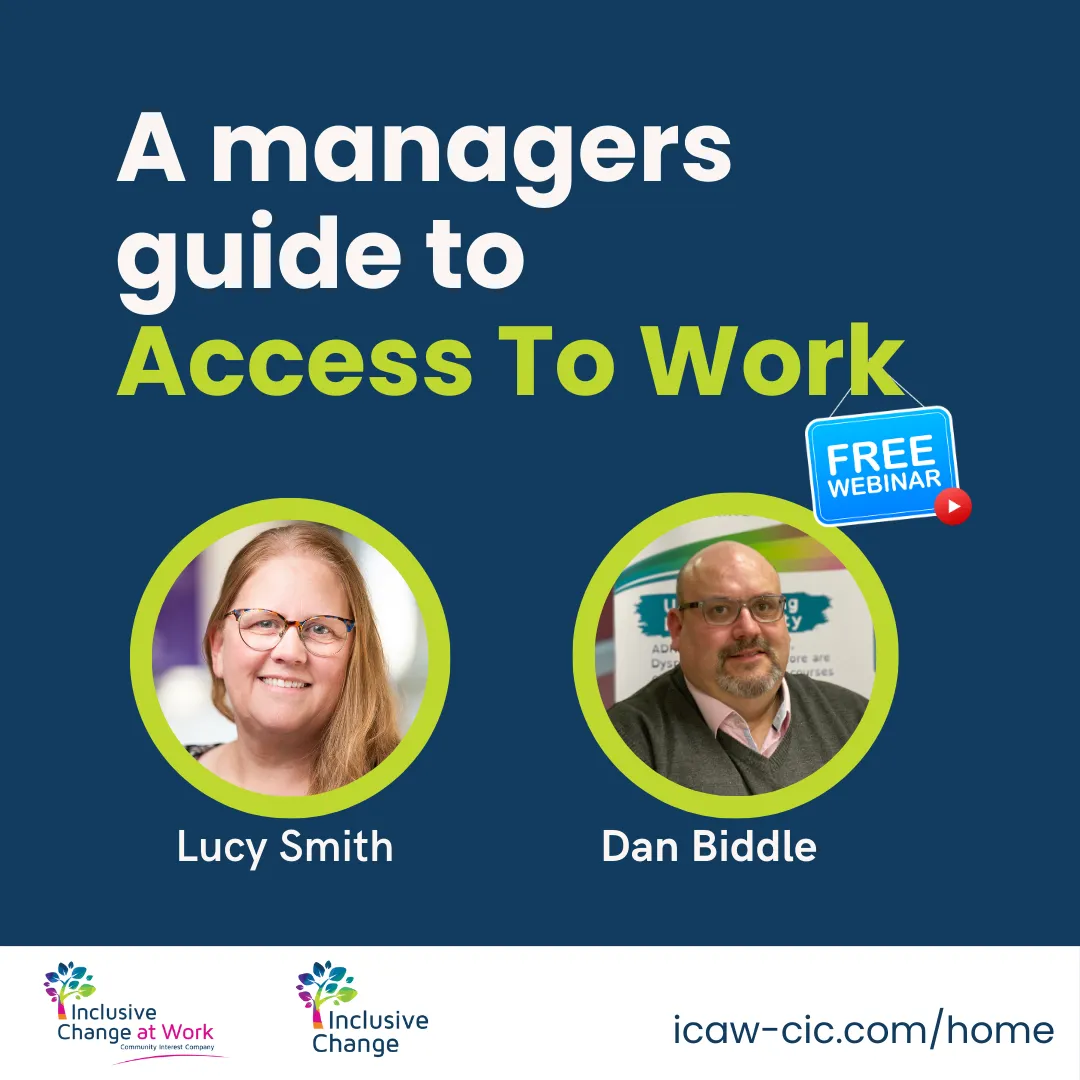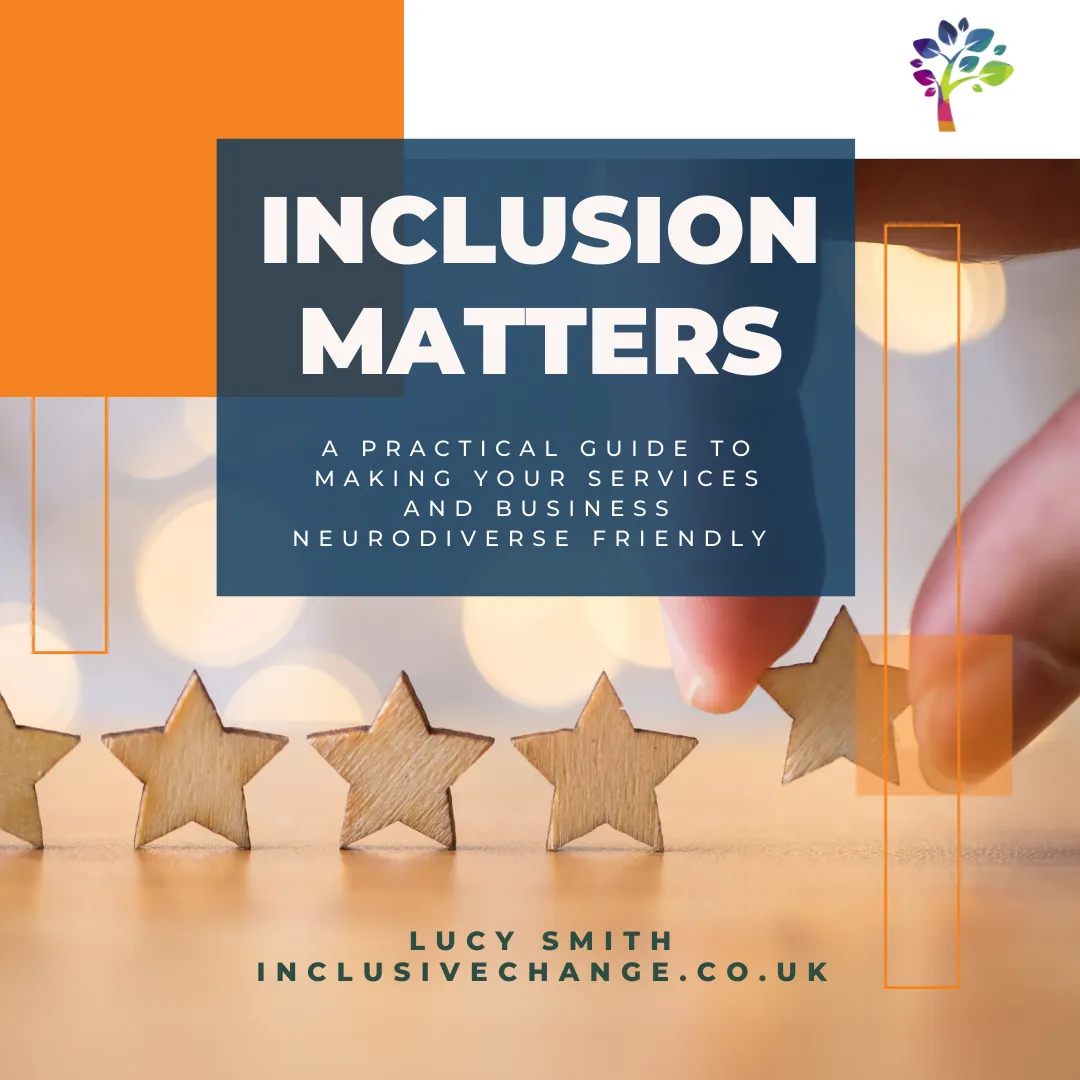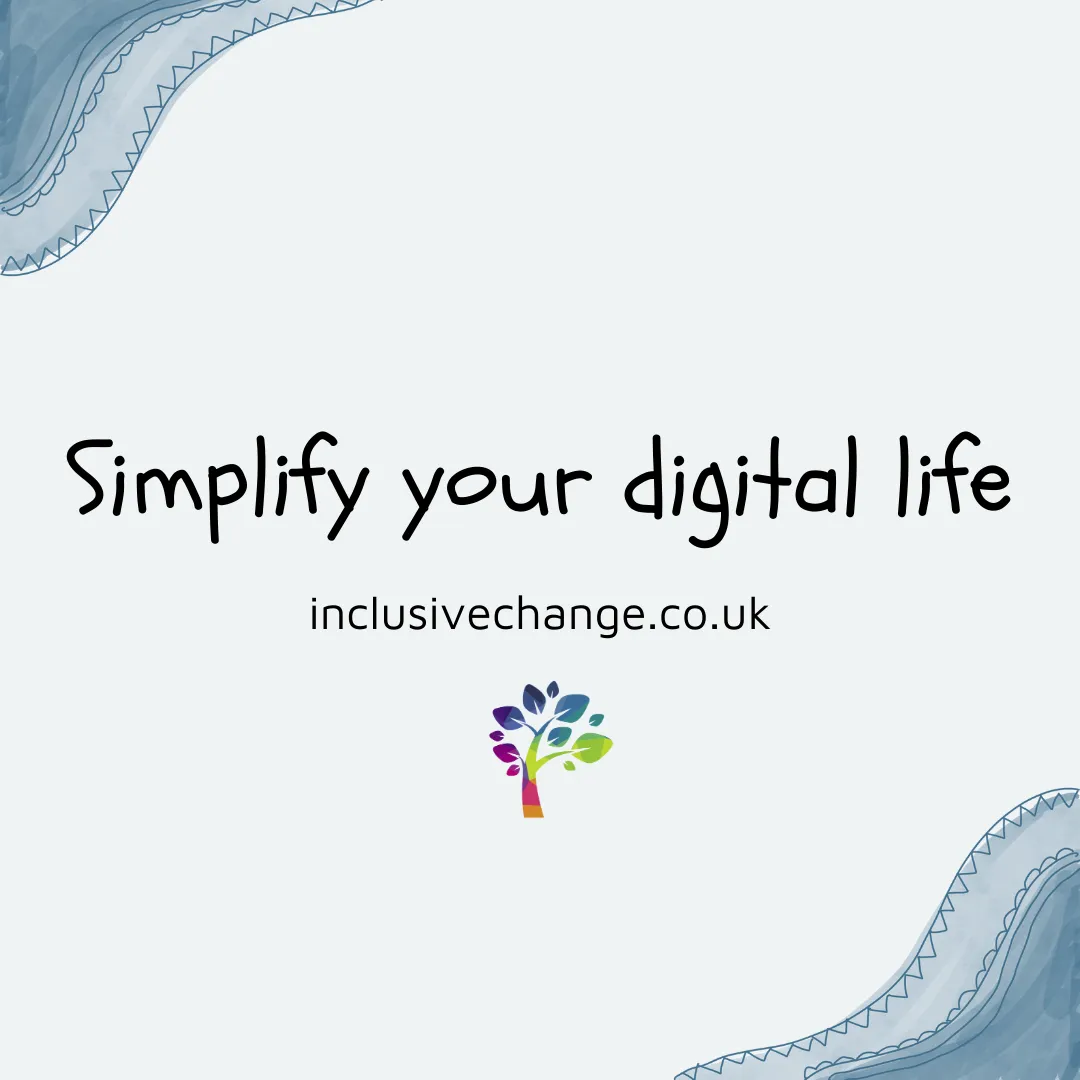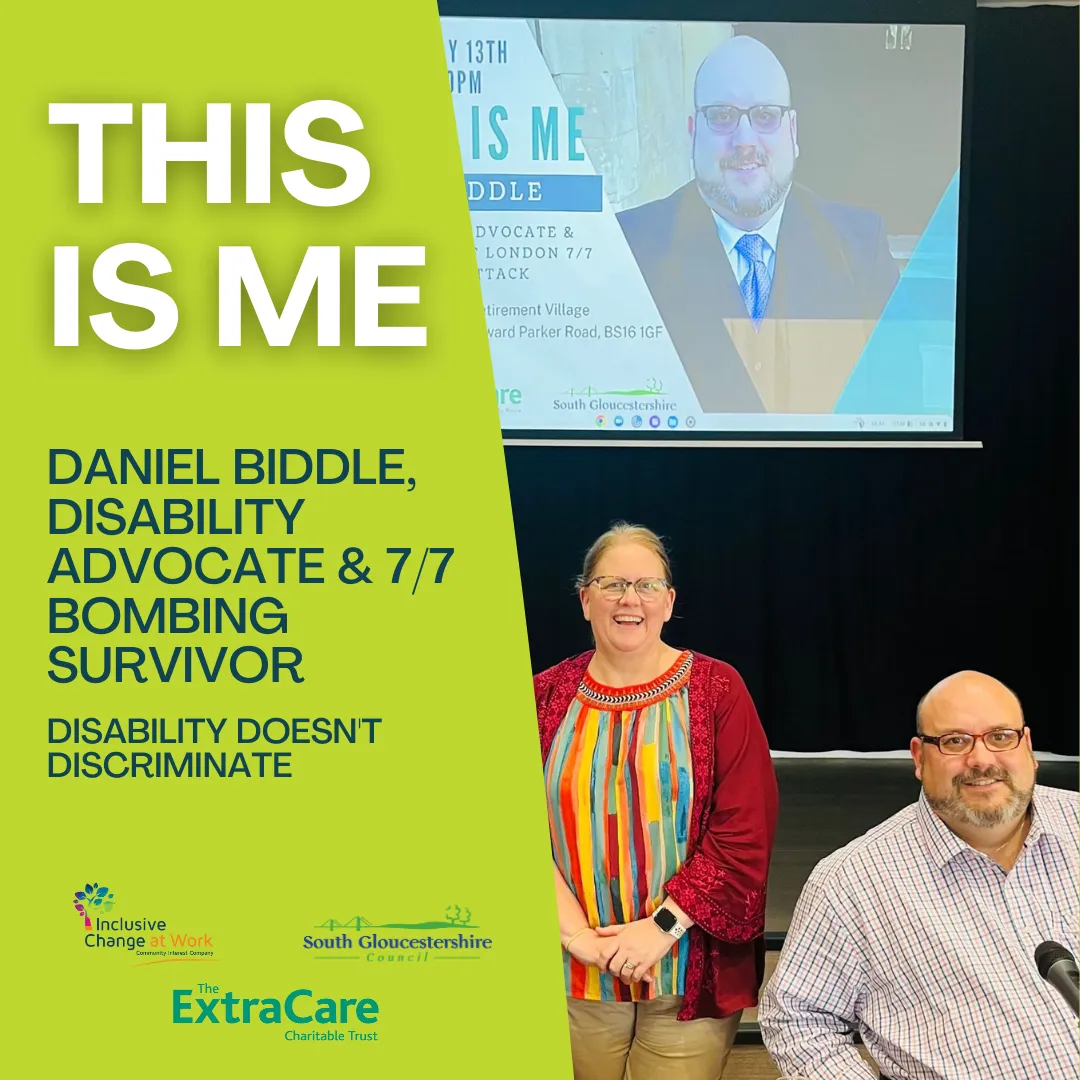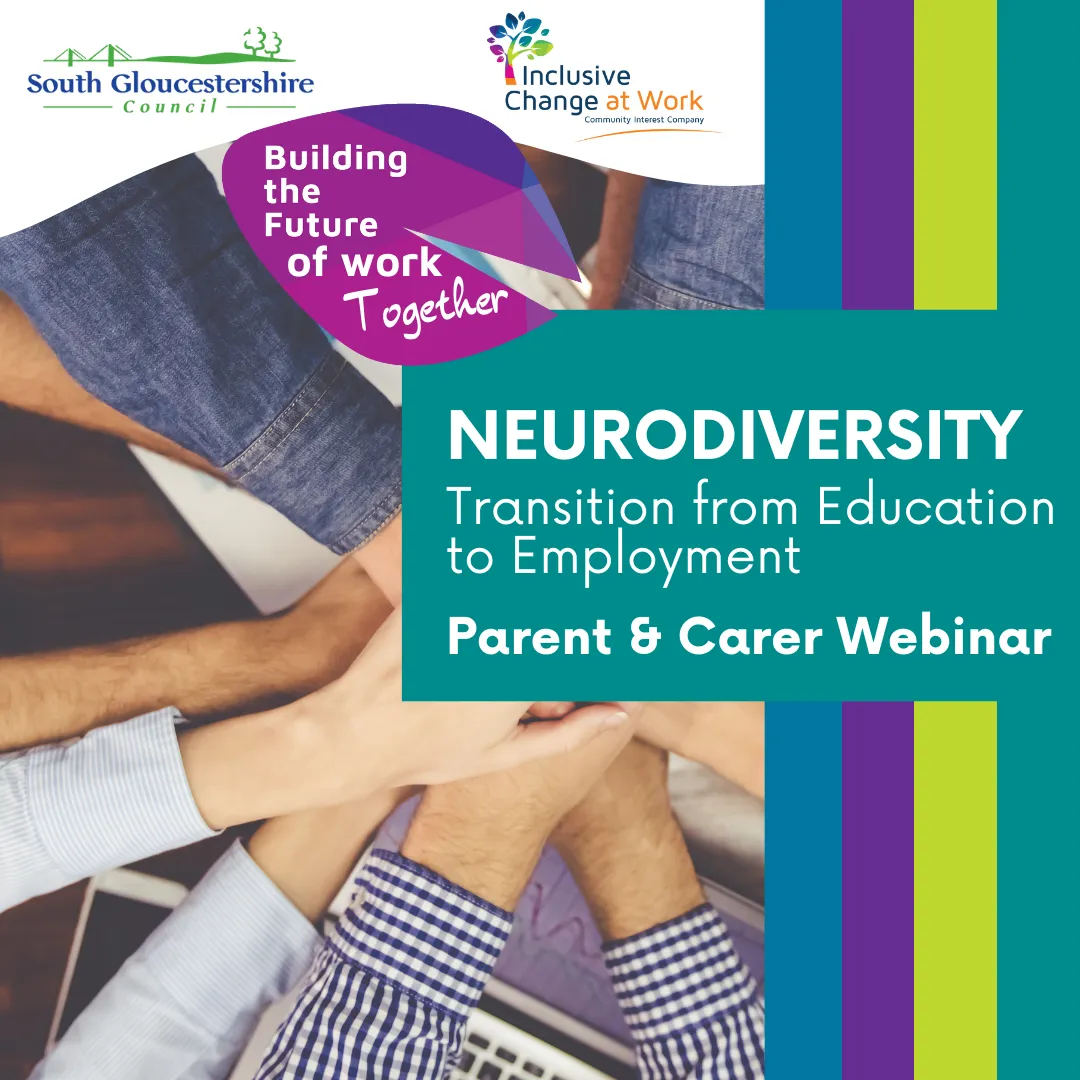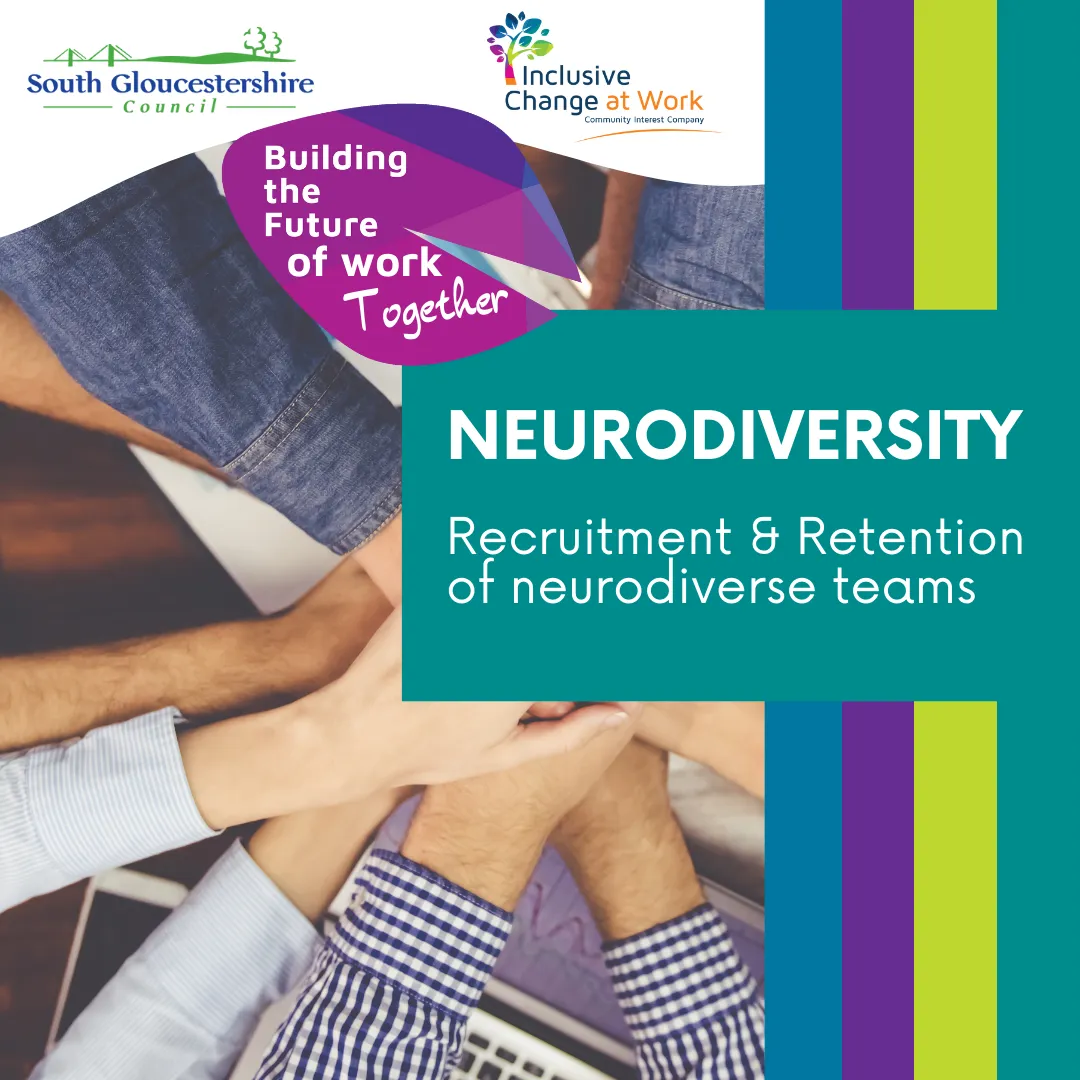Inclusive Change at Work
In the community
We want to thank you for attending our workshops in Emersons Green Village Hall, made possible with funding from Emersons Green Town Council. It has been wonderful to meet so many people and spark meaningful conversations about Inclusion.
We offer a variety of ways to collaborate and support your journey. Be sure to join our mailing list to stay informed about our latest projects, exclusive offers, and exciting initiatives.
To help you take your next steps, we’ve curated this page with valuable resources, insights, and new projects, designed to inspire and empower your conversations about neurodiversity. Dive in, explore, and Keep the Conversation Going!
A Recap of the Slides & Discussions
Let's Talk About Neurodiversity: Building an Inclusive Community Together
Date: 16th January 2025
Speaker: Lucy Smith
Key Takeaways From The Evening
Neurodiversity is Common but Overlooked – 1 in 7 people in the UK are neurodivergent, yet many face barriers in employment and inclusion.
Workplace Challenges Persist – Long assessment wait times, lack of disclosure (76%), and limited employer focus (49%) highlight the need for change.
Inclusive Workplaces Matter – Reasonable adjustments and open discussions help create supportive environments.
Younger Generations are Driving Change – 53% of Gen Z identify as neurodivergent, making inclusion more important than ever.
Action is Key – Safe spaces, advocacy, and meaningful support systems help neurodiverse communities thrive
Supporting Neurodivergent Families
Date: 30th January 2025
Speakers: Lucy Smith & SGPC
Key Takeaways From The Evening
Inclusive Spaces Foster Support – Creating environments where neurodivergent individuals feel safe and valued is essential for meaningful inclusion.
Resilience is Key – Building resilience through learning, coping strategies, and supportive frameworks helps neurodivergent families navigate challenges.
Workplace and Education Accessibility Matters – Reasonable adjustments in schools and workplaces ensure neurodivergent individuals can succeed without unnecessary barriers.
Open Dialogue Encourages Understanding – Safe spaces for discussion help break stigma, allowing neurodivergent individuals and allies to share experiences and seek support.
Ongoing Support and Resources Make a Difference – Access to helpful resources, events, and advocacy networks empowers neurodivergent communities to thrive.
Building the Future of Work With Neurodiversity in Mind
Date: 6th February 2025
Speakers: Lucy Smith & Andy Jackson
Key Takeaways From The Evening
Neuroinclusion is a Business Advantage – Embracing neurodiversity leads to increased innovation, productivity, and employee retention. Yet, many workplaces unintentionally create barriers for neurodivergent employees.
The Social Model of Disability Matters – Disability is not about the individual but the barriers in their environment. Simple workplace adjustments, like sensory-friendly spaces and flexible communication styles, can unlock neurodivergent talent.
Inclusion is Needed at Every Career Stage – From recruitment to promotion, neurodivergent employees face unique challenges. Clear job descriptions, structured onboarding, and strengths-based performance reviews help ensure fairness.
Recruitment & Progression Need Reform – Traditional hiring methods often exclude neurodivergent talent. Companies should prioritize skills-based hiring, alternative application methods, and clear promotion pathways.
Actionable Steps Make a Difference – Businesses should start by reviewing hiring practices, improving workplace accessibility, investing in mentorship, implementing inclusive policies, and increasing diverse representation
Menopause and Neurodiversity
Date: 20th February 2025
Speakers: Kirsty Brown, Fitness for Life, & Lucy Smith
Key Takeaways From The Evening
Menopause Can Intensify Neurodivergent Traits – Changes in hormones can amplify difficulties with memory, focus, sensory sensitivity, emotional regulation, and fatigue, making daily life more challenging.
Dopamine & Cognitive Support Are Crucial – Activities like exercise, music, creative outlets, and structured routines help maintain dopamine levels, while a diet rich in protein, omega-3s, and key micronutrients supports brain function.
Self-Regulation Strategies Help Manage Symptoms – Sensory tools, mindfulness techniques, and cognitive-behavioral strategies can help counteract brain fog, mood swings, and attention difficulties.
Hormonal & Cognitive Support Can Be Beneficial – Hormone Replacement Therapy (HRT) may help some individuals, while structured routines, planners, and reminders aid in managing cognitive challenges.
Community & Environmental Adjustments Matter – Reducing sensory overload, seeking peer support, and creating neuroinclusive workplace environments can improve well-being and productivity for neurodivergent individuals going through menopauseHere's some stuff
Digital Wellbeing for Young People
Date: 6th March 2025
Speakers: Lucy Smith & Emily Chittell
Key Takeaways From The Evening
The Impact of Digital Overuse – Excessive screen time, especially on social media, can negatively affect mental health, as seen in Owen’s experience of using their smartphone to escape emotions but ultimately worsening their mood.
Balancing Digital Consumption – It's important to be mindful of how digital tools influence our emotions and well-being, avoiding over-reliance on social media for coping.
Creating Digital Boundaries – Simplifying digital life can improve mental health, making space for healthier habits and real-world connections.
Support and Adjustments – Neurodivergent individuals may benefit from reasonable adjustments and access-to-work accommodations to create a more balanced digital experience.
Reasonable Adjustments and Access to Work for Neurodiverse Minds
Date: 20th March 2025
Speakers: Lucy Smith & Support Team
Key Takeaways From The Evening
Legal Obligation for Employers: Under the Equality Act 2010, employers must make reasonable adjustments to ensure that disabled employees are not at a substantial disadvantage in the workplace.
Defining Reasonable Adjustments: Adjustments can include changes to the workplace, working arrangements, task execution, or providing necessary support and equipment.
Disclosure and Employer Responsibility: Employees need to disclose their disabilities for employers to act on their duty to make adjustments. Employers are not obligated to assume or act on ambiguous signs of a disability.
Balancing Adjustments with Job Requirements: Adjustments should create fairness without lowering the essential standards of a role. Selection criteria should be inclusive but still maintain job integrity.
The Business and Cultural Benefits: Implementing reasonable adjustments fosters an inclusive workplace, reduces staff turnover, and leads to broader innovations that benefit all employees

Recommended Groups and Services
Articles & Reports
30% More Productive: The ROI of a neurodiverse workforce - 2023
New data suggests that 15% to 20%
of the population may be neurodivergent – up from estimates of 5% to 10% just five years ago. This shift underscores the critical need for employers to broaden the horizons of their diversity, equity and inclusion (DEI) efforts to encompass neuro-inclusion
Half of neurodivergent employees miss work due to lack of support - March 2024
Half of neurodivergent employees have taken time off work due to their neurodivergence, a 5% rise from last year, according to City & Guilds’ Neurodiversity Index. The report also found that 36% received no workplace support, and 18% didn’t know where to seek help.
New Survey by The Harris Poll Reveals Workplace Stigma for Neurodivergent Employees - May 2024
Understood.org, a leading nonprofit empowering more than 70 million neurodivergent people who have learning and thinking differences, such as ADHD and dyslexia, today announced the results of a Harris Poll of over 2,000 U.S. adults ages 18+. The poll shines a light on the challenges and opportunities facing people with learning and thinking differences, such as ADHD, dyslexia, or dyscalculia, in the workplace.

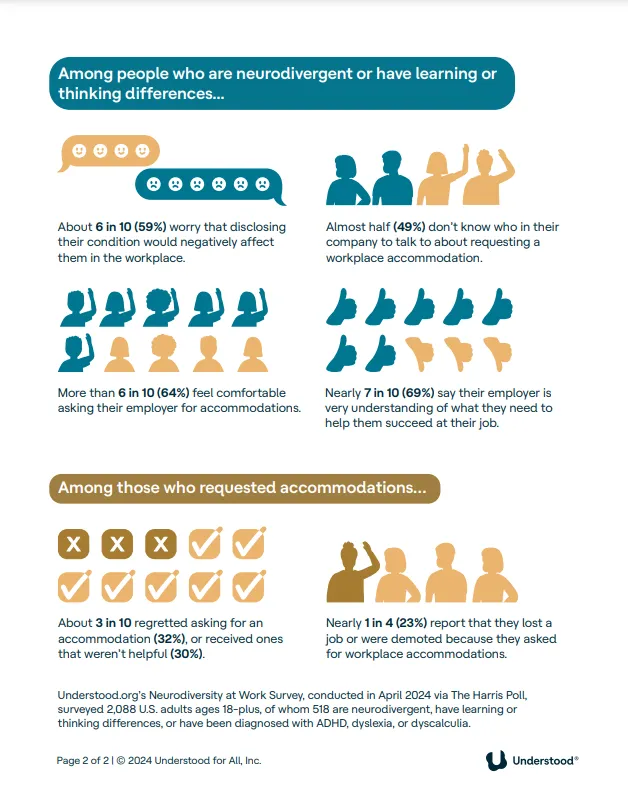
CIPD Neuroinclusion at work report 2024
The reality of neurodiversity means that every interaction at work takes place between people with different brains – yet, typically, very few organisations are thinking about neurodiversity or neuroinclusion. This represents a significant missed opportunity for organisations looking to address their key talent priorities at the same time as addressing inequalities at work faced by neurodivergent people
Meet Your Hosts and Expert
Speakers

Lucy Smith
Lucy is the founder of Inclusive Change and Inclusive Change at Work CIC. She has lived experience of neurodiversity and has been working in the area of neurodiversity for 6 years. Lucy combines a career in change management in internationally renowned organisations with experience in education to create thoughtful and inspiring training and consultancy services.

Daniel Biddle
Daniel is a highly experienced accessibility consultant with extensive experience of disability. Daniel has particular expertise in acquired disability, including acquired neurodiversity. He established the National Disability Employment & Advisory Service in 2022 and focuses on supporting neurodivergent young people & adults into employment.

Kirsty Brown
Kirsty is a proactive, self-motivated individual with managerial experience in motivating teams and providing exemplary service. As a personal trainer and women's health coach, I use an empathetic approach to set and monitor achievable goals, adapting strategies to support clients through life's challenges. My expertise in menopause coaching includes workshops that empower women to confidently make lifestyle changes and navigate difficult times.

Vicky Henderson
Vicky is a multi-award-winning coach, mentor, speaker and trainer. She specialises in working with young people (11-24yrs) helping them grow in confidence, feel happy and generate hope and excitement for a better future.
In addition to working with young people, Vicky also works with parents, schools and employers, to ensure that all young people are afforded the support and help they need to thrive.

Andy Jackson
Andy is a Non-Executive Director of Inclusive Change at Work CIC, as well as an entrepreneurial and leadership coach and a dedicated advocate for neurodivergent individuals.
As a parent to a young adult navigating life with undiagnosed neurodivergence, Andy brings both professional expertise and personal insight to their work.
A skilled coach, facilitator, and trainer, Andy is passionate about enhancing organisational performance and supporting teams to thrive.
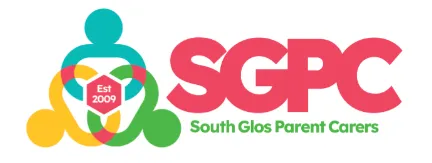
South Glos Parent Carers
South Glos Parent Carers (SGPC), the local parent carer forum that represents & supports parent carers of children and young people with Special Education Needs and Disabilities (SEND) in South Gloucestershire. Driven by a desire to make a difference for every SEND family in South Gloucestershire, SGPC attend meetings across the education, health and social care sectors to ensure service providers understand the challenges families face, so that positive changes can be made. SGPC also offer support to parent carers, via online and drop-in support sessions as well as workshops on a range of SEND topics. The SGPC team are all parent carers themselves, so they truly understand the SEND journey & challenges. From their personal experiences & those of their community, they have gained valuable insight, information and a wealth of SEND knowledge.

Discover Project Sandbox: Shaping a Safer Digital Future
Inclusive Change at Work CIC proudly presents
Project Sandbox, a ground-breaking initiative designed to champion digital safety and disability inclusion.
In collaboration with the Avon & Somerset Police & Crime Commissioner, we’re creating an engaging series of podcast and radio episodes that dive deep into building safer digital spaces for disabled and neurodivergent individuals.
We invite you to be part of this important conversation and join us in driving meaningful change.
Stay tuned, get involved, and let’s make the digital world a place for everyone.
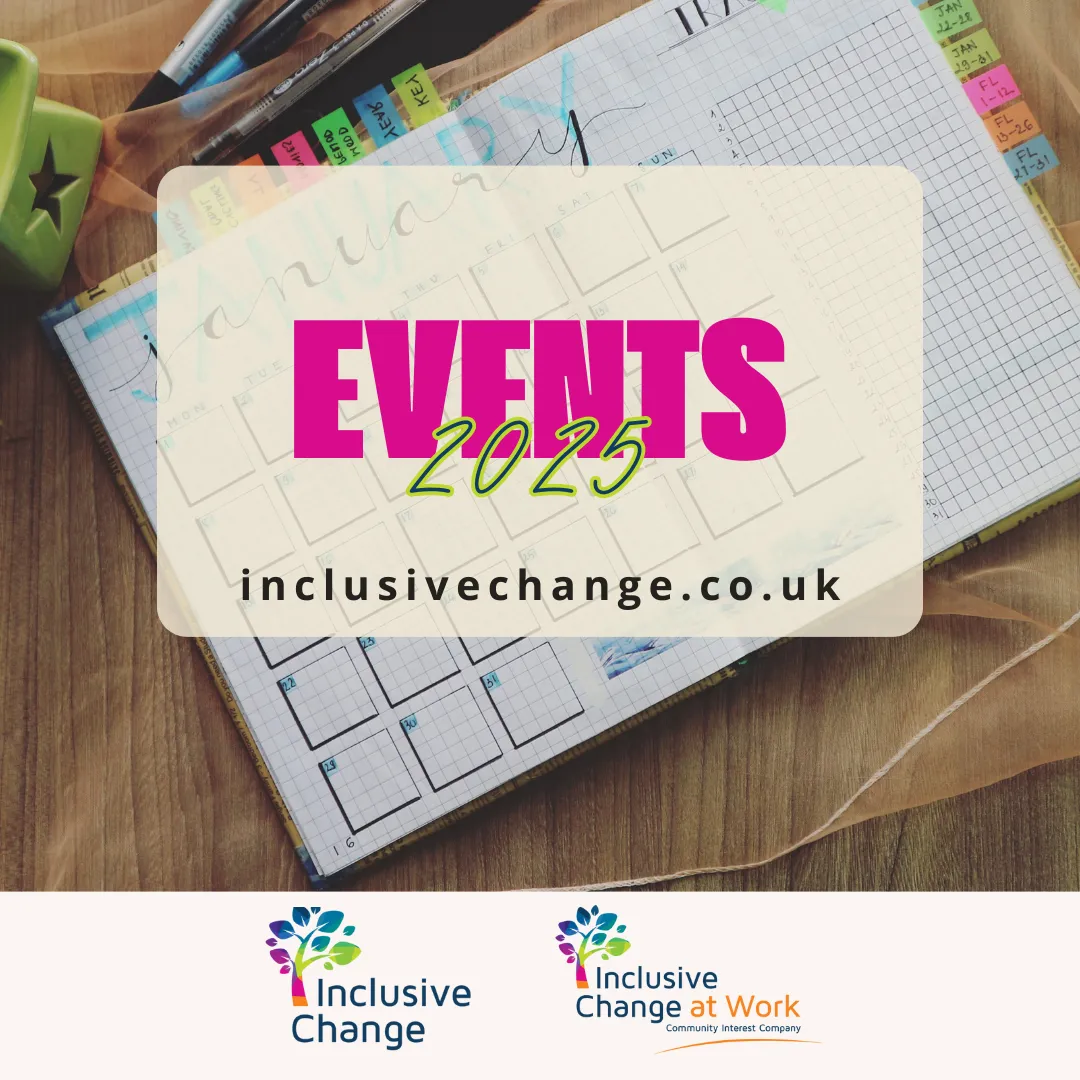
Important Dates in Our Calendar
June 2025
2nd - Understanding & Empowering ND in Sport - Glos. F.A
9th-10th - Festival of Sustainable Business - Bristol Beacon
12th - F'Up Exeter - The Bootlegger, Exeter
July 2025
22nd - F'Up Bristol - The Square Club, Clifton
Free Resources - Guides, Webinars & Courses
Check Out Our Latest Blog Posts
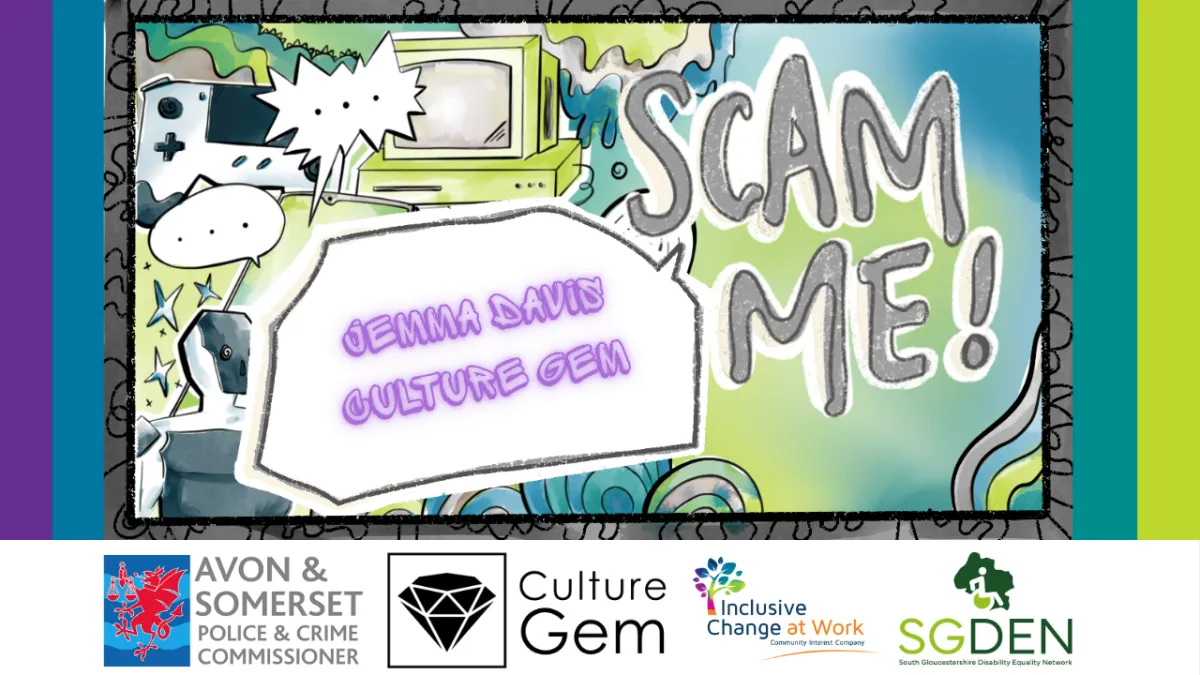
Do It for the Nans: Cybersecurity and Neurodiversity, with Jemma Davis
"Let's do it for the nans."
That’s not just a catchy slogan. It’s a mission. It’s about protecting the people we love from online scams and cyber threats that target the most vulnerable. For Scam Me, we sat down with Jemma, the founder of Culture Gem - our series sponsor and a true cyber storyteller - to talk about how cybersecurity and neurodiversity collide.
This blog unpacks the epic conversation: from teaching life skills to hacking ethics, from WannaCry to nanfluencers, from OSINT to DMARC. Buckle up - this one’s a ride.
What is Culture Gem?
Culture Gem is a unique, inclusive training platform that reimagines mandatory workplace training. It was designed by neurodivergent creators for everyone, especially those who struggle with rigid, one-size-fits-all learning. Instead of boring videos and long-winded text dumps, Culture Gem offers:
Podcasts and video games
News briefings
Colour customisation (11 choices!)
Multiple voice options
A chance to learn how your brain learns best
As Jemma puts it: “We built something that let you tailor the world around you, not just adjust yourself to fit into it.”
Cybersecurity and the WannaCry Wake-Up Call
Jemma never set out to be a cybersecurity expert. She began in teaching, then moved into direct marketing, yes, the kind of marketing where you show someone shoes and they buy the shoes.
Then came a defining moment in 2017: the WannaCry ransomware attack.
While running an event for 200 cybersecurity professionals, Jemma watched the chaos unfold as WannaCry, a massive ransomware attack, crippled computers globally, including the NHS. She saw first-hand the panic, the urgency, and the real-world consequences of poor cybersecurity practices.
“That was the moment,” Jemma said. “I realised this wasn’t just someone else’s job. I had to do something.”
And she did. That moment catapulted her from marketing into the mission-driven world of cyber safety.
Why ‘Do It for the Nans?’
Jemma’s nan is her inspiration, and her reality check. She’s not tech-savvy. She uses a corded phone with Jemma’s face on it as a call button. But scammers still target her constantly.
From fake Amazon calls to social engineering tactics, Jemma’s nan has become a mini-cyber warrior. She calls Jemma with questions like, “Should I care about this?” and then passes the advice down to her friends at the hairdresser.
“She’s a real-life influencer - a nanfluencer,” Jemma laughs.
By protecting her nan, Jemma is protecting everyone’s nan, and everyone else in the family tree. It's a ripple effect: teach one, and they teach ten more.
So, What Is Social Engineering?
Social engineering is when someone manipulates you into giving up personal or valuable information. It could be:
A phone scam pretending to be from your bank
A pop-up survey asking your pet’s name, birth date, or first car
Someone knocking on your door offering to ‘fix’ a wall, only to take your money and run
Cybercriminals often use what’s called FUD: Fear, Uncertainty, and Doubt. They scare people into making hasty decisions instead of teaching them how to respond.
According to Jemma, cybersecurity should be about reducing fear and increasing confidence. We don’t need to terrify people, we need to inform them.
What’s OSINT and Why Does It Matter?
Cam from the Inclusive Change team accidentally flexed some cyber muscles when he admitted to ‘stalking’ Jemma online for research. That’s when Jemma introduced a cyber term: OSINT, or Open Source Intelligence.
OSINT is when you gather information from publicly available sources, like someone’s LinkedIn, Instagram, or Facebook, to learn more about them.
“It’s not stalking. It’s research,” Jemma clarified with a grin.
DMARC, Email Spoofing, and the Spam Trap
Have you ever sent a legit marketing email only to find it landed in someone’s spam folder? That’s where DMARC comes in.
DMARC (Domain-based Message Authentication, Reporting & Conformance) is a way to verify that an email really comes from you and not a scammer pretending to be you. Without DMARC set up, email systems get confused and mark even safe emails as suspicious.
Jemma breaks it down like this:
“When you send a marketing email through Mailchimp or HubSpot, your email system thinks someone is impersonating you. DMARC proves it's really you sending that email.”
It sounds technical, and it is, but tools like ChatGPT can help small businesses configure DMARC, SPF, and DKIM settings step-by-step. You don’t need to be a tech wizard. You just need to ask the right questions.
Security Is a Culture, Not a Checklist
Firewalls and code only go so far. Most cyberattacks - a whopping 96% - start with human behaviour.
Someone clicks a dodgy link. Someone holds the door open for a stranger. Someone uses ‘password123’.
This is why Jemma says security is a culture, not just a checklist of tasks. You need to build a mindset, not just install software.
And that culture includes understanding insider threats, not just the malicious ones, but the ‘survivalists’ who sell data out of desperation to pay a bill. If we only look for bad people, we miss the vulnerable ones.
Why Neurodivergent Minds Shine in Cybersecurity
Here’s where it gets exciting. Cybersecurity needs neurodivergent thinkers.
Jemma explains that many cyber professionals, and even hackers, are neurodivergent.
Traits like:
Hyperfocus
Pattern recognition
Intense curiosity
Creative problem solving
These are superpowers in this field.
She shared stories of people who ‘see’ music and become world-class DJs, or who find vulnerabilities because they approach problems sideways. In a world where cyberattacks are constantly evolving, these minds are critical.
How to Get Started in Cyber (Without Being Techie)
So you don’t have a tech background? Great. Neither did Jemma.
Here’s how anyone, especially young people or neurodivergent folks, can start a cyber career:
1. Follow Your Passion
Jemma didn’t start with tech. She started with care. She wanted to protect her nan. Find your ‘why’ - that’s your fuel.
2. Learn the Basics
Platforms like Udemy offer beginner-friendly cyber courses for as little as £14. You don’t need to know everything, just enough to know what excites you.
3. Network, Your Way
LinkedIn is powerful, but there are other spaces too:
Instagram cyber influencers
Discord servers
Cyber book clubs
Local and online meetups
And if someone sends you a job listing, that’s a sign. Apply.
4. Ask for Help
Cyber people love sharing what they know. Reach out. Ask questions. Ask for mentoring. “We know we need you”, Jemma says.
Final Words of Wisdom
We wrapped the conversation feeling inspired, informed, and more than a little in love with Jemma’s mission.
Cybersecurity isn't just about tech. It's about people. It’s about how we protect the ones we love, from our families to our customers to our colleagues. And it turns out the best way to do that?
Do it for the nans.
Want to learn more?
Listen to Scam Me’ here on YouTube: Learning Inclusive Change
Visit Culture Gem here: Culture Gem
Follow Inclusive Change on LinkedIn: Inclusive Change Ltd - and Facebook: Inclusive Change
And remember, cybersecurity starts with you!
Inclusive Change At Work CiC
Bradbury House
Wheatfield Road
Bradley Stoke
Bristol
BS32 9DB
Companies House: 13271923
ICO registration: ZZB293922
UK register of Learning providers
UKRLP: 10090653
